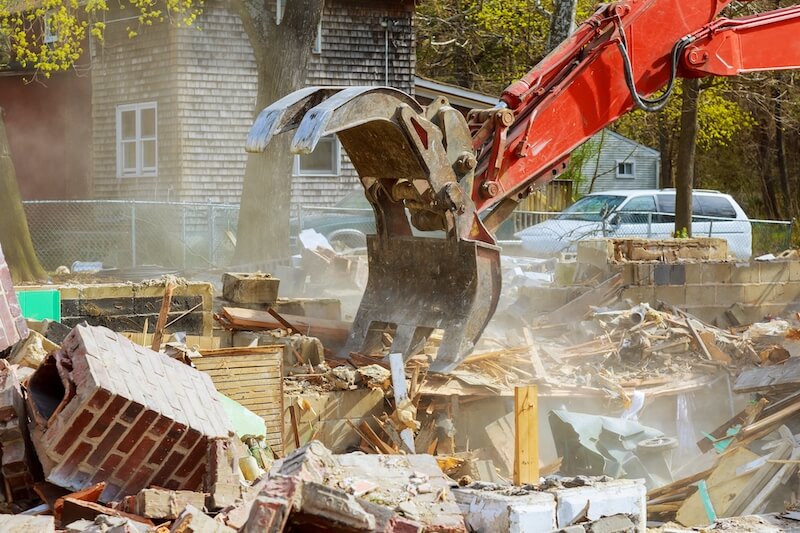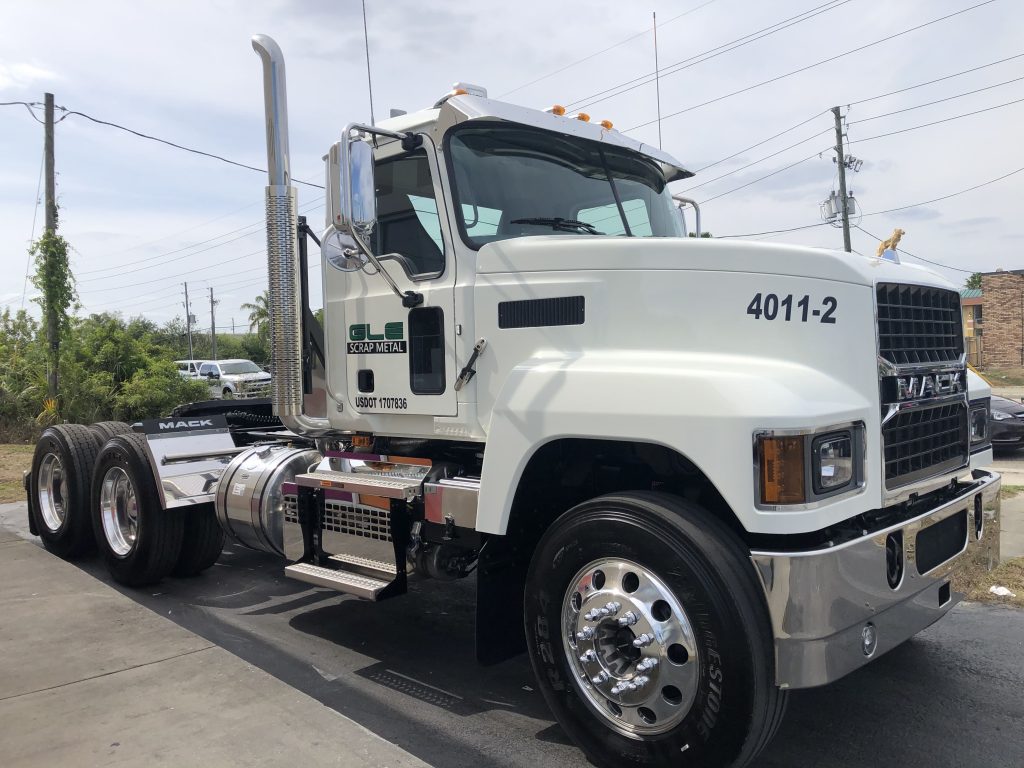5 Easy Steps to Recycle Industrial Scrap Metal
5 Easy Steps to Recycle Industrial Scrap Metal
When dealing with large-scale projects, efficiency and sustainability often go hand-in-hand. Companies are not only tasked with completing projects on time but also managing the significant amount of industrial scrap metal generated in the process.
That being said, recycling industrial scrap metal is the perfect solution to minimize waste, promote environmental responsibility, and even create economic value. For companies operating on a large scale, understanding how to streamline the recycling of materials like steel, aluminum, and copper can make a tangible difference in both project outcomes and long-term profitability.
In this blog, we’re going to discuss the five easy steps to streamline the recycling process of industrial scrap metal. But first, let’s define what exactly industrial scrap metal is.
What is Industrial Scrap Metal?

Industrial scrap metal refers to the leftover, unused, or discarded metal materials produced during manufacturing, construction, and demolition activities. These materials, which can range from steel beams and copper wires to aluminum sheets and brass fixtures, are highly recyclable and retain much of their value even after their initial use.
Recycling industrial scrap metal not only helps reduce waste but also contributes to environmental sustainability by lowering the demand for virgin materials.
Types of Industrial Scrap Metal
Industrial scrap metal can be broadly categorized into two types: ferrous and non-ferrous.
Ferrous Metals
Ferrous metals contain iron and are known for their strength and durability. Common examples include:
- Steel: Widely used in construction for beams, pipes, and frameworks.
- Cast Iron: Found in machinery, pipes, and construction components.
Non-Ferrous Metals
Non-ferrous metals are lighter and more resistant to corrosion, making them valuable in various applications. Examples include:
- Aluminum: Commonly used in siding, wiring, and HVAC systems.
- Copper: Frequently found in electrical wiring, plumbing, and roofing materials.
- Brass: Often used in fittings, valves, and decorative elements.
Most Common Uses of Industrial Scrap
Industrial scrap results from various industries and applications which is why it’s so important to take advantage of scrap recycling.
So, let’s discuss a few of the most common uses of industrial scrap metal.
1. Construction Materials
Recycled metal, especially steel and aluminum, plays a critical role in construction. These materials are melted down and reformed into essential components such as:
- Structural Beams and Frames: Used for building foundations, bridges, and high-rise structures.
- Reinforcement Bars (Rebar): Strengthening concrete in both residential and commercial construction.
- Architectural Features: Recycled aluminum and steel are also utilized in facades, roofing panels, and decorative elements.
2. Manufacturing New Products
Many manufacturers use recycled metals to create new products. Here are some examples:
- Automotive Industry: Scrap steel and aluminum are repurposed into car bodies, engines, and other parts.
- Appliances: Refrigerators, washing machines, and other household appliances often incorporate recycled metals.
- Packaging: Aluminum and tin are reused in creating cans and containers, reducing the need for raw materials.
3. Energy Infrastructure
The energy sector relies heavily on recycled metals for creating efficient and sustainable systems such as:
- Electrical Wiring and Components: Copper and aluminum are recycled into wiring, transformers, and electrical grids.
- Renewable Energy Projects: Scrap metals are essential for building solar panels, wind turbines, and battery storage units.
4. Heavy Equipment & Machinery
Industrial scrap metal is vital in fabricating machinery and equipment for industries like mining, agriculture, and manufacturing. Recycled steel and cast iron are commonly used for:
- Tools: Wrenches, hammers, and industrial cutters.
- Transport Equipment: Parts for ships, trains, and heavy trucks.
By understanding the types and uses of industrial scrap metal, large-scale companies can implement efficient recycling strategies that benefit both their operations and the environment.
Why Your Business Should Recycle Industrial Scrap Metal

While it may be hard to determine exactly how much metal you need for a project, the good news is that your scrap metal can be repurposed and recycled continuously without losing quality. There are many benefits as to why your business should recycle scrap metal, so let’s uncover some of those together.
First, it reduces the need for raw materials, cutting procurement expenses and conserving natural resources. Recycling also supports compliance with environmental regulations, helping businesses avoid fines while demonstrating a commitment to sustainability—a factor increasingly important to customers and stakeholders.
Beyond financial and reputational benefits, recycling helps streamline operations by reducing waste disposal needs. This keeps job sites cleaner and more efficient. Overall, for businesses aiming to combine profitability with environmental stewardship, recycling industrial scrap metal is a win-win solution.
5 Easy Steps to Recycling Industrial Scrap Metal
Now that you understand the importance of recycling industrial scrap metal, let’s go over the five easy steps to recycle your scrap with GLE.
1. Identify What Industrial Metals You Have at Your Business
First, start by assessing the types of scrap metal generated by your operations. Common materials include steel, aluminum, copper, and brass. Knowing what you have helps determine the best recycling approach and makes sure nothing useful goes to waste.
2. Sort Metals by Category
Next, separating ferrous metals (such as steel and iron) from non-ferrous metals (like aluminum and copper) is essential for efficient recycling. Non-ferrous metals often have higher resale value, and sorting them upfront can speed up the recycling process and maximize your returns.
3. Find a Qualified and Certified Industrial Scrap Metal Recycler
Certified recyclers adhere to industry standards and make sure your scrap metal is handled responsibly and processed with minimal environmental impact. Additionally, working with experts like GLE Scrap guarantees compliance with regulations and gives you access to fair market prices for your materials.
4. Get Cans and Bins from GLE Scrap
Now, you can streamline your collection process by utilizing GLE Scrap’s durable cans and bins. We have a wide range of containers including 10-80 yard roll-off boxes, 4×4 and 4×8 pallets and gaylords, and 55-gallon drums. These containers are tailored to fit your operational needs, whether you’re managing small-scale scrap from a single site or large volumes from multiple locations.
5. Schedule Routine Scrap Removal and Pick-Up
Finally, establishing a regular pick-up schedule with GLE Scrap keeps your operations running smoothly. This prevents scrap metal from piling up, freeing valuable space and keeping your recycling efforts consistent. Routine pickups are especially beneficial for large-scale companies managing ongoing construction or demolition projects.
By following these steps and partnering with GLE Scrap, your business can simplify the recycling process, reduce costs, and contribute to a greener, more efficient operation.
Streamline Your Industrial Scrap Metal Recycling Process with GLE Scrap

Recycling industrial scrap metal is more than a sustainability effort—it’s a smart way for companies to save money, streamline operations, and meet environmental goals. From identifying and sorting metals to scheduling regular pickups, having a reliable partner makes all the difference.
GLE Scrap offers the expertise, resources, and customer-focused solutions to turn your scrap metal management into a seamless and profitable process. By partnering with GLE Scrap, your business meets its recycling needs and also contributes to a cleaner, more sustainable future.
Contact GLE Scrap today to get started, and start streamlining your recycling today!
